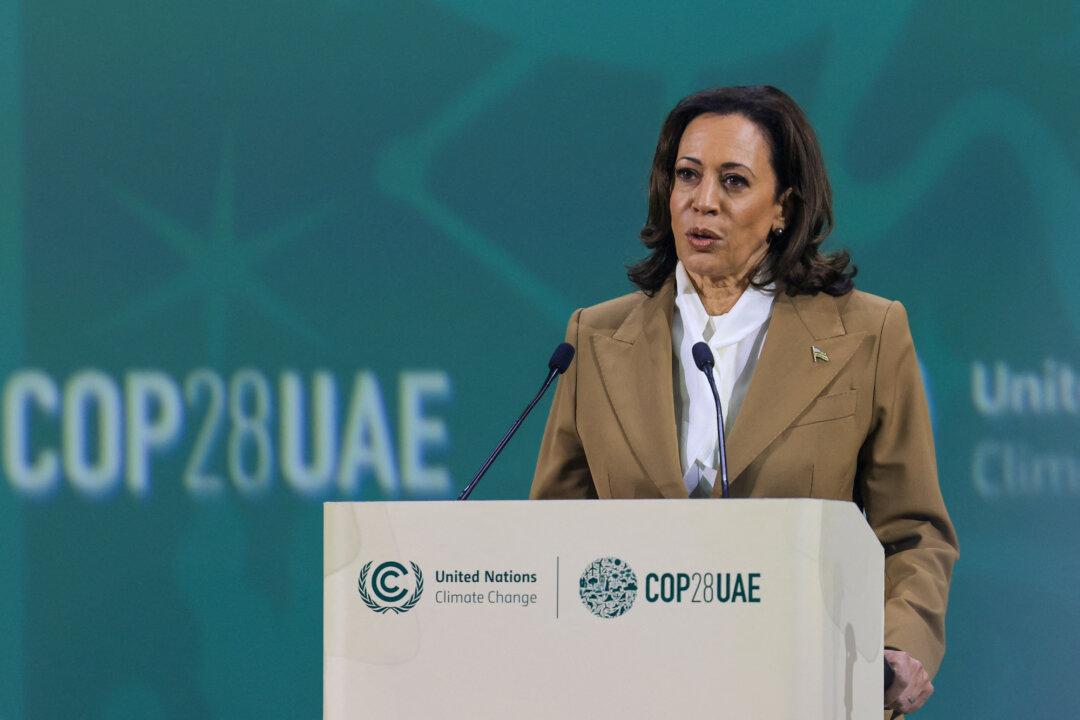The Biden administration said it is going to spend $3 billion to help less developed economies address the impact of climate change, including more than $400 million to advance “gender equity” in those countries.
The announcement comes as Vice President Kamala Harris, speaking on Saturday at the United Nations’ annual climate summit in Dubai, urged rich countries to “do more” to keep pace with an agenda of preventing the global temperature from rising more than 1.5 degrees Celsius.





